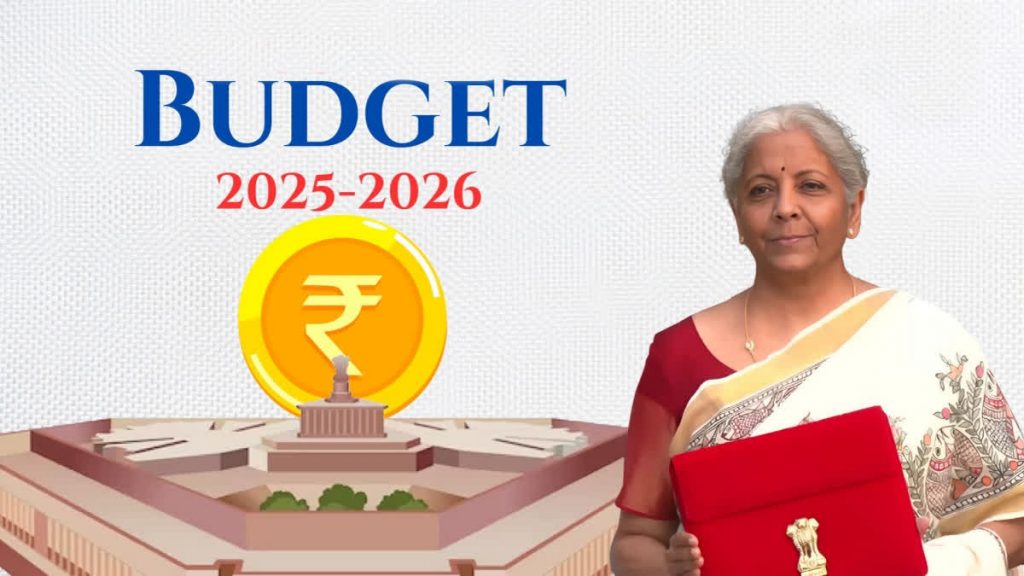Goa is abuzz with excitement as vintage bike and car owners, users, collectors and fans are decking […]

BUY MORE SOAP, SHAMPOO, MAGGIE NOODLES!
Feb 08- Feb 14 2025, In the News February 7, 2025By Rajan Narayan
THE budget for 2025 is aimed at encouraging you to buy more soap, shampoo and Maggie noodles. Budget 2025 is aimed at making you buy more TV sets, washing machines and cars. The primary concern of Finance Minister Nirmala Sitharaman is to stimulate demand, particularly for fast-moving consumer goods. The entire range of consumer goods from beauty products to toothpaste to Aashirvaad atta and Postman cooking oil are facing a sharp fall in demand.
The consumer may be buying newer and more expensive mobile phones. The consumer may be investing more money in mutual funds. The consumer may be buying more gold as it is the best hedge against inflation. The consumer is not buying enough quantities of consumer goods. This is partly because everything is become so expensive. As a colleague remarked if you go to the market with an Rs500 note or Rs2,000 your shopping bag does not get full.
Not surprisingly the consumer is cutting down on luxury products. The consumer is focusing on the bare necessities.
The result is that some of the biggest companies in the country like Hindustan Lever and the Tatas, Godrej and Marico which make edible oils like Saffola and hair products like Parachute are all incurring huge losses. The largest consumer goods companies in the country have seen their profits shrink in the last two years.
STEEP FALL IN CONSUMERISM
FOR instance, Hindustan Lever which is the largest corporate player in the fast-moving consumer goods market, registered a profit of only four percent in the last quarter of 2024. All the major consumer goods manufacturers have reported a steep fall in their revenue from sales. Both urban demand and rural demand have been falling. This is true not only in the case of soaps and shampoos, packaged atta and edible oil, but even in the case of entry-level cars.
Tata Motors and Maruthi, the two biggest manufacturers of cars, have seen a drastic reduction in sales. This is true of other consumer sectors and semi-luxuries like chocolates and dairy products.
The bitter truth is that due to rising prices and static incomes, the purchasing power of the common man has gone down sharply. This has affected all sections of the economy. If consumer goods do not get sold the factories manufacturing them cannot increase salaries. If salaries don’t grow consumers will not be able to buy. The economic survey has confirmed that while the profits of the company have reached an all-time high, there has been no corresponding increase in wages and salaries. This is the main reason for the slowdown in the economy. The rate of growth adjusted for inflation was only an average of less than six percent in the financial year 2024-2025.
It is the concern over the steep fall in the demand that has compelled Finance Minister Nirmala Sitharaman to sharply reduce the income tax on salaried individuals. The growing middle class is very upset. Narendra Modi keeps claiming that several crores of people have been lifted out of poverty and now are part of the middle class. The lower middle class with a salary of Rs3 lakh to Rs4 lakh annually with the middle-middle class with an average income of Rs6 lakh to Rs 12 lakh a year and the upper middle class who earn Rs12 lakh to Rs25 lakh a year.
MIDDLE CLASS WOES
THE middle class may not be a major vote bank. But it is the middle class that grumbles and complaints the most. The poor do not have a voice. The rich and the super-rich don’t care. It is the middle class that is worst affected by any price rise. For quite some time now the middle class has been angry. In the previous budget no relief has been provided for the middle class. This is the first time the income tax exemption limit has been increased to Rs12 lakh per annum. This means that anyone who earns one lakh a month will not have to pay any income-tax.
This is of course conditional to the fact that those with a salary of Rs12 lakh take advantage of the permissible tax deduction. The most popular of these is the standard reduction. It is been estimated that people earning a salary of Rs12.7 lakh a year will not have to pay any income tax. But be careful that your salary does not cross the Rs12 lakh ceiling. The moment your salary crosses Rs12 lakh you will end up in the higher tax bracket where you have to pay 20 percent as income tax.
But even at higher incomes up to Rs25 lakh the maximum rate of tax will be restricted to 25 percent of total income. With the provision of rebates on an income of Rs 24 lakh you will only pay tax of Rs3 lakh tax. If your income is Rs12.75 lakh and you invest Rs1.5 lakh under 80C which refers to fixed deposit mutual fund, provident fund and pension scheme, you will get away with paying zero tax.
If your income is Rs25 lakh your tax liability will be Rs3.43 lakh. You can bring down the taxes even at that level by purchasing an apartment. There are tax deductions available for the purchase of not just one house but two self-occupied houses in the current budget. Moreover, the deduction on the interest on home loans has been increased to Rs2 lakh a year. Medical insurance premiums up to Rs 25,000 are also exempt from tax. You will however have to invest a minimum of Rs1.5 lakh in mutual funds or other saving schemes. If your salary crosses Rs50 lakh you can cut down your tax liability by buying a vacation home. This will probably encourage more and more rich bhaile to buy villas and flats in Goa as a second home.
Between Rs55 lakh and Rs2.5 crore, your tax liability will be 30 percent which can be brought down by taking advantage of the tax rebate. This is the first time a finance minister has focused entirely on the middle class. This will leave more money in your pocket to spend so that the demand for consumer and other goods will increase. The finance minister is hoping that this will increase employment as production will go up to meet the demands.
OVERWHELMING GST BURDEN
MOST people believe that income-tax relief is too little and too late. The biggest burden on the consumer is not income-tax but GST. The increase in prices of common goods is because of the high GST. For every Rs1,000 rupees you spend the government steals at least Rs2,000 by the way of GST. It will not affect the government much if it lowers income-tax. This is because revenue from income-tax accounts for less than two percent of total revenue. The harsh reality is that less than five percent of the population pays income-tax in the country. It does not matter if income-tax has been reduced as the losses can be made up by increasing GST.
So there is not much relief to the tax payer by the way of cuts in excise duty on customs duty. The exception is drugs for cancer on which the customs duty have been cut drastically. Presumably to boost the internet market for the benefit of Reliance Jio the GST on mobile data has been sharply reduced. The duty on mobile phone battery has also come down. Somebody in the finance ministry is a fish lover. There is a sharp cut in the duty of fish paste.
For those who like to import fancy bikes like Kawasaki or Harley Davidson, there is good news because the customs duty has been cut. Similarly, if you have taken a loan to fund your child’s education abroad you get a big discount because both TDS and TCS have been reduced.
The biggest beneficiaries of the tax cut is the private consumer goods companies. The finance minister’s hope is that the tax cut will stimulate demand. This in turn will boost manufacturing activity, which will create more jobs. But if the consumer refuses to spend and prefers to save the hopes of the finance minister will be dashed.















